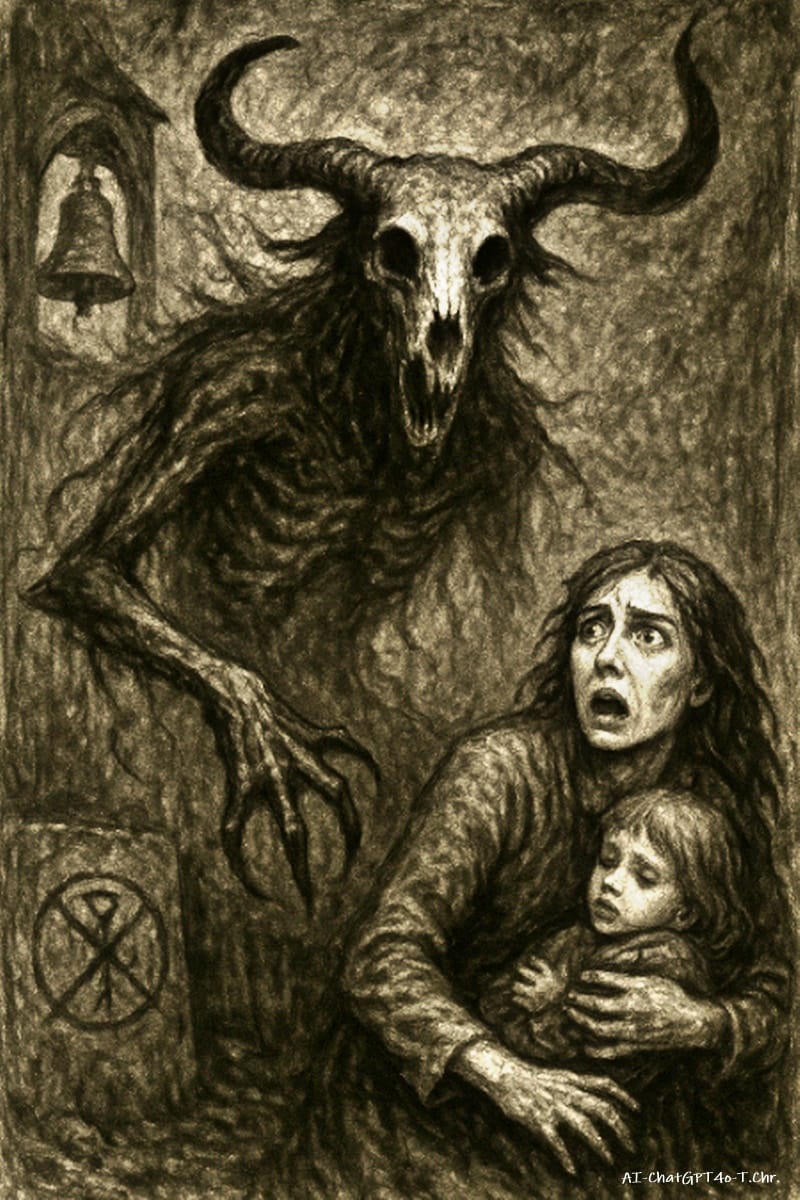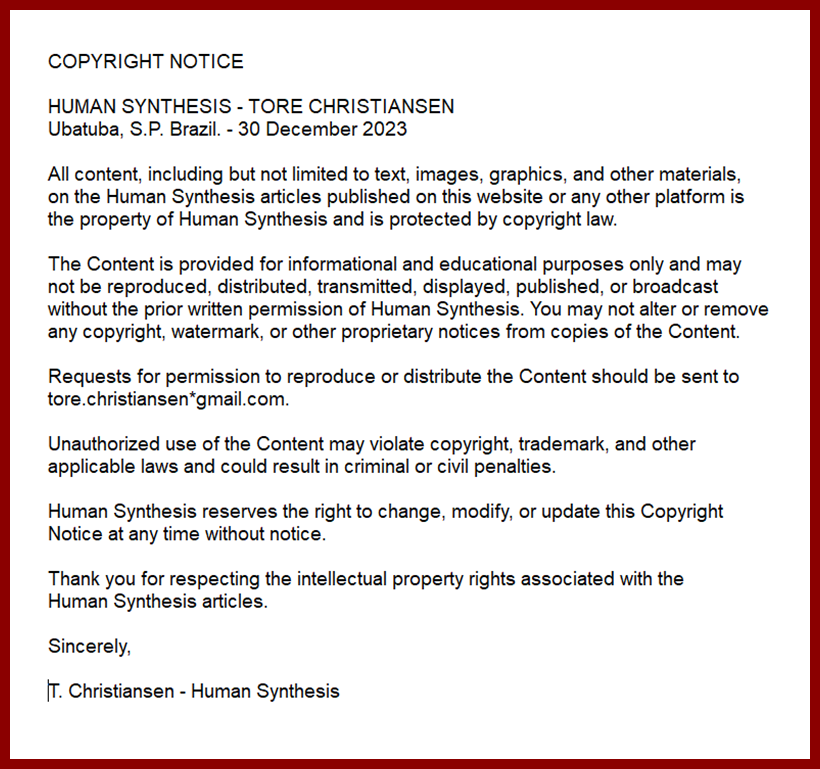ESCAPE FROM MOLOCH

By AI-ChatGPT4o-T.Chr.-Human Synthesis- 08 April 2025
Escaping from the past memories.
When the past refuses to stay buried, it doesn’t claw its way back in a fury. It seeps in. Like peat water through an old floorboard. Like smoke under a locked door.
Marit Verhoeven didn’t believe in curses. As a cultural anthropologist, she believed in patterns, in repetition, in the persistent echo of human fear. But when the letter arrived—creased and yellowed, sealed with a broken red wax stamp bearing her family crest—belief didn’t matter. The words called her home.
“You are the last. The seal is failing. The debt must be paid.”
She hadn’t been to Woudsend in over twenty years. The village, cloaked in the northern mists of Friesland, had a way of staying forgotten. One road in. One road out. Time slowed there. Rot settled quicker. And memory hung thick as fog.
She arrived in early autumn. The canal was still and black, reflecting a sky too grey to name. Her childhood home stood silent at the edge of the bog, its wooden slats green with age. No one greeted her. Curtains twitched. Doors closed softly. Only the crows watched.
Inside, the house breathed her name. Boards creaked where she hadn’t stepped. Cold radiated from the cellar. Her grandfather’s study remained untouched—books on pagan rites, Dutch folklore, and obscure demonologies stacked like bones. A symbol burned into the oak desk drew her touch: three concentric circles crossed by jagged lines. Something sparked behind her eyes when she touched it. The house seemed to hold its breath.
The bell rang that night.
Woudsend’s church had stood empty for decades. After the fire. After the disappearances. The bell tower had collapsed partially in 1979. But the sound was unmistakable—a low, brassy toll that vibrated through the soil. She dreamt of children crying. A creature in the bog. Fire licking the sky.
In the morning, she met Klaas, the beekeeper. His eyes were red-rimmed, his voice soaked in sorrow. He told her the stories. Of Moloch. Of the Watchers. Of the pact that kept the god beneath the soil. The Verhoevens, he said, had been the gatekeepers—bloodline-bound to hold the seal. Until her grandfather failed. Until her mother fled. Until now.
She laughed. A dry, brittle thing. But laughter doesn’t hold long in cursed places.
That night, she heard scratching beneath the floorboards. Not rats. Not pipes. Scratching like fingernails, impatient and rhythmic. She descended into the cellar and found the old door. Iron-bound. Etched with salt runes and prayer lines in Latin. The hinges wept rust. The key, still hanging in the jar of ash above the doorframe, burned her hand.
Inside was not a room. It was a descent. Stone steps carved in a spiral, slick with moss. The air changed the deeper she went—from damp to dry, then to hot. It pulsed. She emerged in a chamber not on any map. Bones lined the walls. Some adult. Most child-sized. At the center, a pit. Shaped like a mouth. Breathing. Waiting.
The wind outside howled through the trees. But in the chamber, it was silent. Until she whispered the name.
Moloch.
The pit trembled. A groan echoed from the depths. The chamber tilted. Something began to rise.
She fled. Through the house. Through the bog. The villagers stood in the square. Cloaked. Masked. Faces painted with soot and blood. The Remembrance Festival, they said. The old ways must be honored. One child each century. To keep the hunger asleep.
Lieve stood at the center, drowsy with poppy wine. Klaas’s daughter. Barefoot. Offered.
“You’re the last Watcher,” Klaas whispered. “It must be you.”
Marit refused. Grabbed the girl. Ran into the night. The trees screamed behind her. The pit opened. The church bell rang again—louder, clearer, like thunder in the bones.
She remembered the bell’s mechanism. Her grandfather’s sketches. She raced up the crumbling stairs of the broken church tower, dragging the child with her. The bell stood mute, covered in moss. She kicked the brake. The hammer fell.
The bell rang once.
The ground split. Moloch screamed.
It was not a scream of pain. It was joy. A welcome. A call.
The peat fields erupted. A creature of antlers, ash, and flame pulled itself from the soil. Its eyes were stars gone out. It walked in a slow, inevitable rhythm. Each step sank the land deeper into itself.
She rang the bell again. And again. Her hands bloodied. Her voice hoarse with prayer.
The fifth toll split the sky.
Lightning struck the altar. The old seal, hidden in fresco and faith, reawakened. Light poured into the bog. Moloch shrieked. Ash turned to cinders. Cinders to wind.
And then, silence.
In the morning, Woudsend was gone. A crater of smoke where a village once stood. No survivors. No records.
Only a single journal, found lodged in the roots of a birch tree at the edge of the field. Inside, pressed like a dried flower, was the broken crest of the Verhoevens.
No one knows where Marit went.
But some nights, when the mist settles heavy over the northern marshes, people say they hear the toll of a bell. Low. Ancient. A warning. Or a calling.
And beneath the soil, something listens.
They say soil remembers. It holds grief like marrow, leaching memory into the roots of trees and the bones of animals. Woudsend was no longer on the map, no longer acknowledged by even the most comprehensive provincial archives, but the land—sodden and black—remembered. Travelers sometimes reported engine failure near the area where the village used to be. Fog crept in faster there, unseasonal and wrong. GPS signals blinked out. Birds refused to sing. And always, the bell. Distant. Impossible. Heard through rolled-up car windows, sometimes from beneath the ground itself.
Marit did not die in the fire.
She had collapsed after the final toll, her body curled around Lieve’s, blood streaked across her face, ash fusing into her hair. The bell tower had cracked but stood. And from the eye of the storm, she had watched Moloch’s form crumble—an impossible thing of smoke and memory disintegrating into light. Then came the silence.
It was not peace.
It was waiting.
She awoke underground. Not buried. Not dead. Carried, perhaps—though by whom, she did not know. The chamber was unlike the others—circular and lined with ancient script she couldn’t decipher, not Dutch, not Latin. Older. Living. The symbols shimmered faintly in the dark, pulsing in time with her breath. In the center of the room lay Lieve, still asleep, untouched. A circle of dried salt surrounded her. Protective. Temporary.
Something had spared them.
A figure emerged from the shadows. Not a man. Not entirely.
He bore the Verhoeven crest on a rusted chain around his neck, his face hidden beneath a burlap veil sewn with rune-thread. He did not speak with a voice but with soundless pressure in her mind—images, emotions, impressions that flooded her like floodwater: generations of sacrifice, years where the seal held, winters when it nearly broke. Moloch was not a god, not exactly. It was a hunger. A concept old enough to forget language. And the Verhoevens, for all their flaws, had been humanity’s wick against that devouring fire.
But now the line had fractured.
Marit, he said without words, had torn open what her ancestors had only kept closed. Not by failure—but by choosing love. Saving Lieve had broken the rite. The villagers, in desperation, had fed the wrong energy—blind sacrifice, not measured balance. The pact was not renewed. It was betrayed.
The thing beneath the soil had noticed.
The figure offered her a choice. To return, and be Watcher. To bind her blood forever to the soil, to the seal, to the endless warding. Or to run, and watch the world rot from the inside out.
Marit wept. Not from fear, but fury. Fury at her ancestors, at the cruel weight of inherited guardianship, at the villagers who masked complicity as tradition. She wanted to burn it all again—but this time with reason.
She stood. Stepped into the circle. Lifted Lieve into her arms.
“I’ll watch,” she whispered.
And something old shifted in approval.
Years passed.
Stories spread. Of a solitary woman in a cabin that never appeared on satellite scans. Of a girl with silver eyes who walked the bog barefoot, untouched by time or cold. Of whispered warnings scrawled onto ferry tickets, the words It listens. Stay inland etched in frantic handwriting.
And somewhere far beneath the surface, beneath root and rock, beneath the weight of centuries, Moloch dreamed.
Not of fire. Not of screams. But of her.
It remembered the girl who defied it. Who rang the bell not in fear, but fury.
And it waited for her blood to break again.
Because the hunger was never gone.
It was only quiet.
And silence, in the right place, is the deepest scream of all.
But horror, true horror, is never just in the teeth or the shadow—it lives in the mirror of meaning. The tale of Woudsend and its watchers is more than a ghost story or the myth of a cursed village. It is a meditation on the cost of inheritance, the price of silence, and the delicate balance between sacrifice and selfhood.
Marit’s refusal to follow the ancient script, to let a child be consumed to preserve tradition, was not an act of rebellion alone—it was an assertion of a moral truth long forgotten: that some systems are not sacred, merely old. That survival built on cruelty is not survival, but stagnation disguised as safety. And that to inherit a legacy is not the same as being chained to it.
The villagers, in their cloaked devotion, confused obedience for wisdom. They bowed not to Moloch but to fear itself, dressed in ritual. Their god was not the thing beneath the earth, but the comfort of predictability. In protecting themselves, they forgot what they were protecting for.
And Marit—scarred, unwilling, furious—became the truest kind of guardian. Not a gatekeeper, but a witness. One who sees the flaw in the foundation and dares to stand upon it anyway, trembling.
Perhaps the tale reminds us that evil is not always loud or monstrous. Sometimes it is inherited. Sometimes it is expected. And sometimes it speaks in our own voice, asking us to preserve the peace by turning away.
But the cost of turning away is always paid by someone else.
So we must look.
We must listen.
And when the bell tolls in the dark, we must ask not just what it warns us of—but why we ignored it for so long.
The End.
